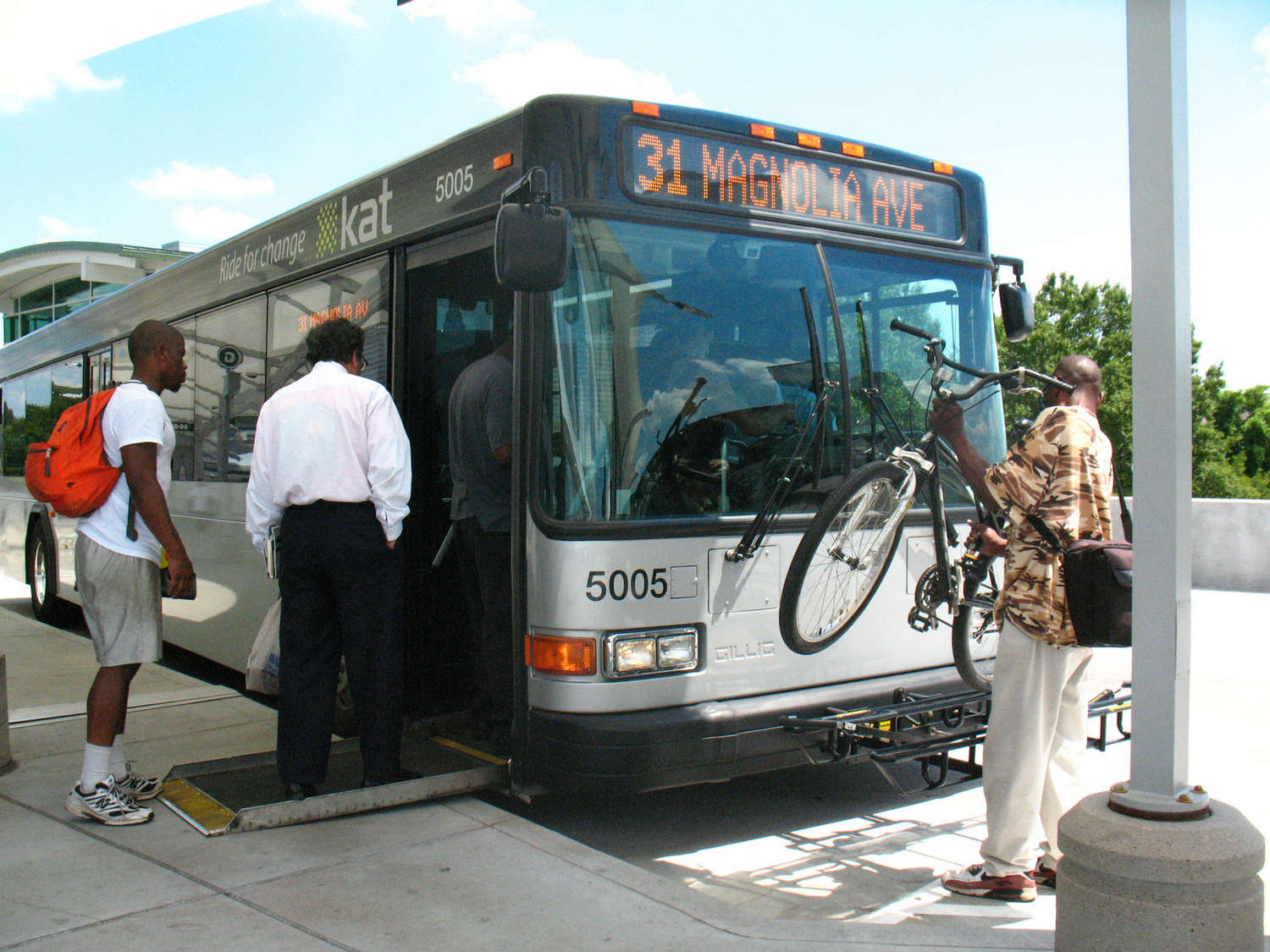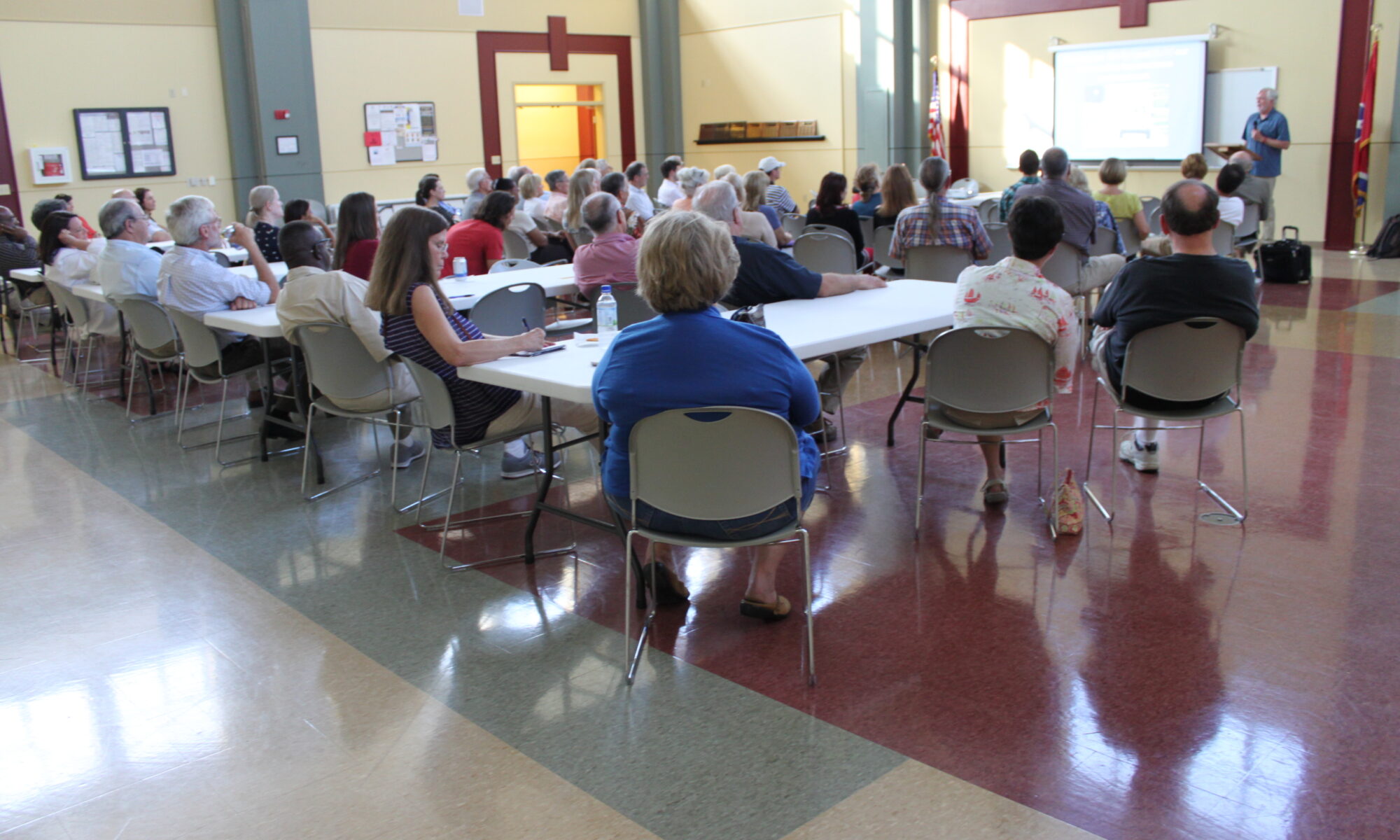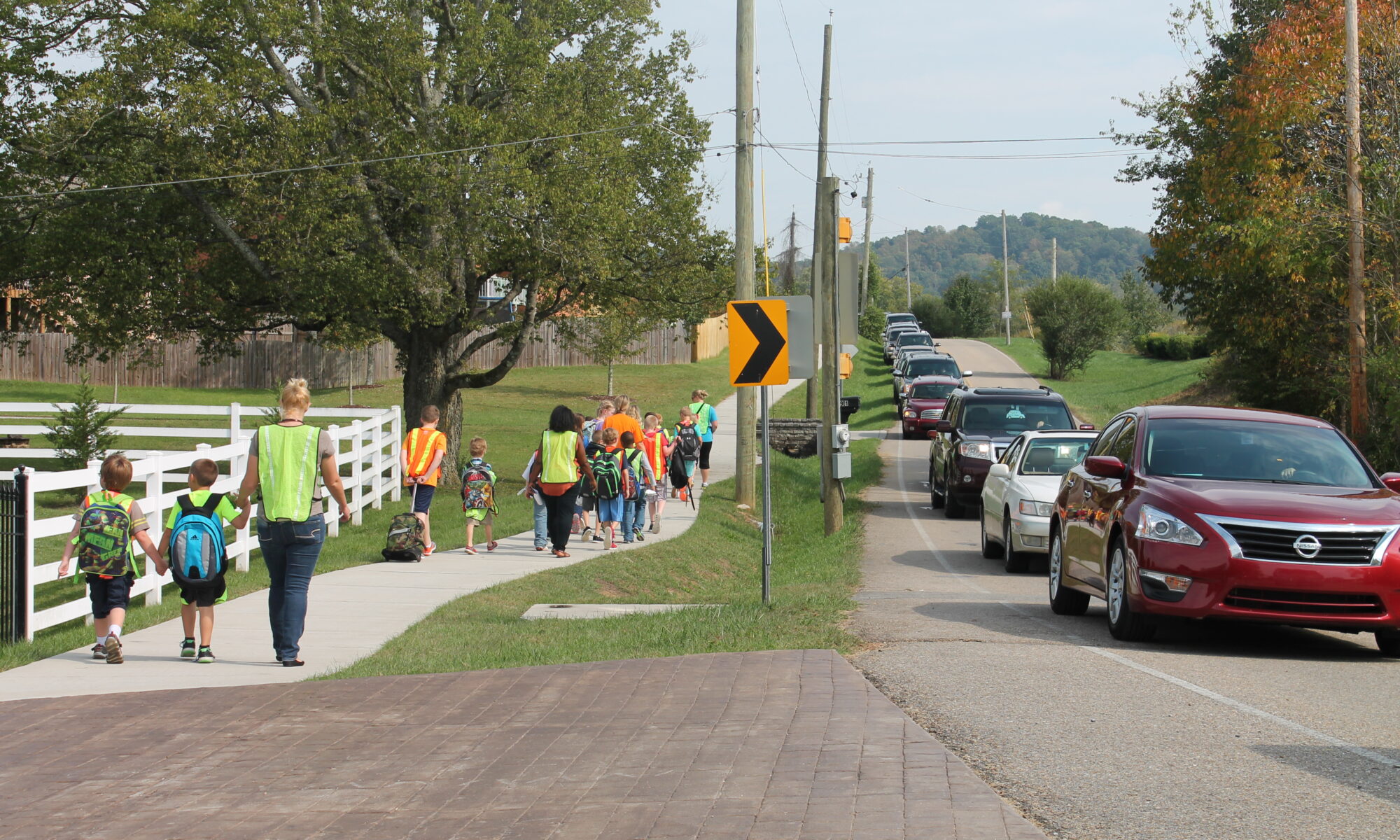Chuck Marohn from Strong Towns discussed a more sustainable approach to building places. An Active Knox throwback from Nov. 4, 2016.
Public Review and Comment Period for Air Quality Conformity Determination on an Amendment to the Tennessee Department of Transportation’s (TDOT) FY 2020 – 2023 State Transportation Improvement Program
The Knoxville Regional Transportation Planning Organization (TPO) has completed an air quality conformity determination document on the behalf of TDOT to demonstrate air quality conformity for Amendment #98 to the 2020-2023 State Transportation Improvement Program. Amendment #98 is for the new Sevier and Jefferson Counties Project Number 2078220, SR-35/US 411, (Newport Hwy.) from near Sims Rd. in Sevier Co. to near SR-92 in Jefferson Co. This project consists of constructing a rural five-lane highway on a new alignment. Air quality conformity for transportation project amendments is required in Sevier County as a former Maintenance Area designated under EPA’s national ambient air quality standard for ozone.
The public is being asked to review this document and provide comments to the TPO. The comments and suggestions will then be reviewed and responded to/incorporated into the document as appropriate.
To provide comments or ask questions:
1) Email contacttpo@knoxplanning.org
2) Write to: Knoxville Regional TPO
Attn: Mike Conger
400 Main Street, Suite 403
Knoxville, TN 37902
Mobility Plan Overview
Mobility Plan 2045 was adopted in April, but we’re still talking about it! Staff created an interactive story map that details what’s in it and what it means for all of us living in the region. If you want a good condensed version of the plan and the process, be sure to check it out. Don’t forget to take the survey at the end to tell us what topics you’d like to learn more about and how you’d like us to share that information.
Community Meetings Scheduled for Alcoa Highway Corridor Study
Knoxville-Knox County Planning staff is undertaking a small area study for the portion of Alcoa Highway within Knox County. This work follows a design charette that was held by the East Tennessee Community Design Center in 2019. In 2020, the City of Knoxville and Knox County each approved resolutions for Planning to undertake a study to develop an approach and policies to envision and manage development along the highway. The final recommendations will look at land uses along the corridor, considering specific changes needed to spur that redevelopment and encourage retail, commercial, and increased housing.
A community meeting is scheduled for September 30, 2021, at 5:30 p.m. It will be held at the North Campus of Sevier Heights Baptist Church, 2939 Alcoa Hwy, Knoxville, TN 37920. The meeting will open with a short presentation followed by an open house.
In addition to this in-person meeting, a virtual meeting will also be held earlier that day. A presentation will be given, followed by time for questions, at 12:00 p.m. on September 30. Interested individuals can register to participate at https://us02web.zoom.us/webinar/register/WN_ygDcamdwRhOWEt9PjydUjA
Draft Outreach Plan Available
The Outreach Plan fulfills federal requirements and serves as a working tool for TPO staff to refer to with each new plan and project. The last Outreach Plan update was adopted by the Executive Board in 2018. In this update, we have incorporated new outreach methods and noted the importance of flexibility and dedication to using new methods when possible.
The draft document is available for review and comment until October 10, 2021. If you have comments on the plan, please email Ally Ketron at ally.ketron@knoxplanning.org or 865-215-3234 or comment in person at an upcoming TPO Technical Committee or Executive Board Meeting. Details on those meetings can be found at https://knoxtpo.org/boards-and-committees/.
TPO Welcomes AmeriCorps Member, Jace Swain-Crowley
Jace was born in Maryland, but spent his childhood split between Bartlett and Cordova, TN, just outside of Memphis. He stayed there until he moved across the state to Knoxville to attend the University of Tennessee. Jace graduated from UT in the spring of 2021 with a degree in geography and a minor in history. Through his coursework in geography, he developed a particular interest in geographic information systems (GIS).
Jace is also interested in the environment, and that curiosity helped him find AmeriCorps as he was deciding what to do after graduation. He was initially attracted to Knoxville’s CAC group because of their focus on the environment and recognized the program as an opportunity to grow professionally. When he came across the open position with the TPO he was eager to learn more about the position. With this opportunity he hopes to help UT students become more aware of AmeriCorps and the opportunities their programs offer.
During his time with the TPO, Jace will help with bike shop outreach, Bike Month, events like Parking Day and Tour de Lights, the Smart Trips program, and bicycle and pedestrian counts. He’s already started reaching out to local bike shops and is enjoying it. He recently shared that he hopes to foster more local outreach, especially at UT, to increase awareness of the TPO’s work.
Jace’s familiarity with GIS also gives him an opportunity to get involved in other projects with the TPO and Planning during his time with us. He’s particularly excited to learn more about transportation-related GIS work.
When he’s not in the office, you can find Jace running on the greenway, beer tasting, and playing video games. He’s also a fan of seeing movies, especially anything Marvel, in the theater. Jace happily reports that he’s enjoyed a few at the downtown Regal location in person since it reopened. We’re excited to have him with us this year and look forward to all his contributions!
Program of Projects Available
The Program of Projects (POP) is a listing of how federal transit funds will be spent in the urban area. The Knoxville urban area received stimulus funding through the Federal Transit Administration (FTA) from the Coronavirus Response and Relief Supplemental Appropriations Act (CRRSAA) and American Rescue Plan Act (ARP). The FTA stimulus funding is distributed through the FTA Section 5307 and Section 5310 Programs.
The City of Knoxville is the Designated Recipient of the FTA Section 5307 Formula Urban Area funds and the TPO is the Designated Recipient of the FTA Section 5310 5310 Enhanced Mobility of Seniors and Individuals with Disabilities funds.
If you have any questions please contact Doug Burton at 400 Main Street, Suite 403, Knoxville, TN 37902 or at (865) 215-3824 or at doug.burton@knoxtpo.org.
The TPO Executive Board will act on the Section 5310 Program funds at their meeting on September 22, 2021 at 9:00 a.m. in the City County Building – 400 Main Street, Knoxville, TN 37902.
Pellissippi Parkway Design Meeting Scheduled
At the request of the Blount County Commission and in conjunction with the Virtual Design Meeting held in April 2021, the Tennessee Department of Transportation (TDOT) will host an in-person Design public meeting on September 21, 2021, to gather additional public input on the proposed project in Blount County on SR-162 EXT (Pellissippi Parkway), from SR-33 to SR-73 (US-321).
The meeting will be held from 5:00 p.m. until 7:00 p.m. EST at Heritage High School, 3741E Lamar Alexander Parkway, Maryville, TN 37804.
For more information, visit https://www.tn.gov/tdot/projects/projects-region-1/pellissippi.html
Public Review and Comment Period: Air Quality Conformity Determination on Amendments to the Knoxville Regional Transportation Planning Organization FY 2020 – 2023 Transportation Improvement Program
The Knoxville Regional Transportation Planning Organization (TPO) announces a 30-day public review and comment period (August 23, 2021 through September 21, 2021) for amendments to the FY2020 – 2023 Transportation Improvement Program (TIP) involving existing projects #20-2014-035 (Relocated Alcoa Hwy), #20-2014-069 (Alcoa Hwy) and new project #20-2020-012 (Relocated Alcoa Hwy combined). The TPO is soliciting public comments on the Air Quality Conformity Determination made for these amendments. You are invited to comment by phone, email or in-person at 400 Main Street, Suite 403, Knoxville, TN. Additionally, public comments may be made at the TPO Technical Committee meeting on Tuesday, September 14, 2021 held at 9 a.m. in the Small Assembly Room of the City-County Building, 400 Main Street, Knoxville, TN. Comments can be made to Mike Conger at 865-215-3813 or at Mike.Conger@knoxtpo.org.
If you would like a printed copy or need assistance or accommodation for a disability, please contact the TPO at 865-215-2506 or Laura.Edmonds@knoxplanning.org.
Research on School Walkability Published
Over the past 50 years, active commuting to school has declined 35 percent in the U.S. TPO’s Ellen Zavisca teamed up with researchers from the University of Tennessee to explore this issue and how increased connections could impact a student’s ability to walk or bike to school. Their case study, Impacts of Small Changes in Thoroughfare Connectivity on the Potential for Student Walking, was recently published in the Journal of Urban Planning and Development.
Through her involvement with Safe Routes to School, Ellen knew that physical activity and active commuting are associated with increased academic achievement, higher attendance rates, fewer disciplinary actions, increased activity outside of school, and lower body mass index. She had started noticing that kids who live very close to their school were often not in the Parental Responsibility Zone (PRZ) because road networks didn’t provide connections needed to easily get there. The lack of commuting options had resulted in increased traffic from private transportation and busing, increased pollution, and increased costs associated with buses, drivers, and associated expenditures.
To further explore this, the researchers conducted a case study to determine what would happen if there was increased road connectivity around schools in Knox County. Ten Knox County elementary and middle schools, both suburban and rural, were selected for the study. New streets were added to the selected areas to evaluate how they would impact walking to the nearby school.
They found that adding a 600-foot street near a suburban school resulted in:
- 700 additional residences within the PRZ,
- 120 more students within the walking distance,
- 120 students who got 40 more minutes of physical activity each day, and
- 4 less daily bus trips, resulting in approximately $88,500 saved per year.
Ellen’s partners concluded that retrofitting neighborhoods was the answer, but Ellen’s takeaway was different. Through her experience as a transportation planner, she recognized the benefits that could come from working with developers and school systems on the front end. Doing this could ensure that schools are better connected to their surrounding communities by streets, sidewalks, or footpaths. Creating these connections gives families better access to school walkability and saves the school system significant transportation dollars.







